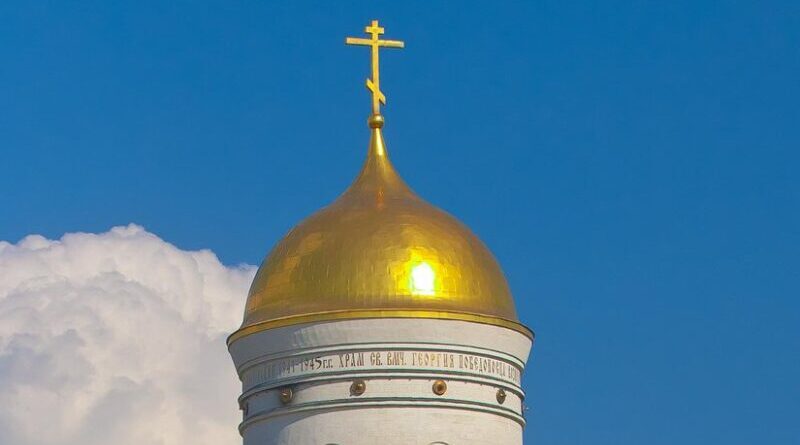Three Significant Religious Developments Other Than Ukrainian Autocephaly – OpEd
By Paul Goble
The issue of Ukrainian autocephaly and its consequences has so dominated news about religion and politics in the former Soviet space over the last several weeks that other religious developments there which also have enormous political significance risk being overshadowed (cf. credo.press/monitoring-smi-strong-tretij-rim-petushki-strong/).
Three developments this past week fall into that category. They include a call by a Jewish leader to increase the number of synagogues in Moscow to 20, a reported agreement by the Armenian Catholicos to retire and give place to someone closer to the new government there, and the visit of Pope Francis to Estonia, Latvia, and Lithuania.
First, in an interview with Izvestiya, Aleksandr Boroda, the head of the Federation of Jewish Communities of Russia, says that Moscow needs “a minimum of 20 synagogues” and that other Russian cities need new synagogues as well (iz.ru/791073/valeriia-nodelman/aleksandr-boroda-v-moskve-budet-bolshe-sinagog).
He says that they won’t be put up all at once and notes that his organization does not have any agreement with the city of Moscow to open them. Instead, Boroda says, “we seek to purchase something, reconstruct it or rent” facilities. And he stresses that synagogues because they do not involve services that reach into the streets should not be a problem for anyone.
But Boroda’s call is likely to create problems nonetheless. On the one hand, many Russians, driven by anti-Semitic attitudes or simply NIMBY sentiments, are likely to oppose the opening of so many synagogues for the relatively small Jewish community in Moscow, the center in their view of Orthodox Russian civilization.
And on the other, his appeal is likely to lead Muslim leaders to renew their drive for most mosques in the Russian capital. At present, there are only six officially registered ones for a community that numbers more than two million. Muslim leaders are likely to invoke Boroda’s plans as the basis for making a claim of simple justice for their own faithful.
Second, Yerevan’s Zhokhovurd newspaper reports that Catholicos Garegin II, the patriarch of the Armenian Orthodox Church, has agreed with the new government of Armenia that he will step down in the near future, supposedly giving health as the explanation for the change (https://armlur.am/ժողովուրդ-թերթ/ in Armenian; credo.press/219877-2/ in Russian).
Many of the demonstrators who brought Nikol Pashinyan to power have been pressing for Garegin’s retirement given his close relationships over the last 27 years with now-discredited former Armenian presidents. They even staged demonstrations outside his residence in Echmiadzin.
The changeover at the top of the Armenian church will send shock waves through Armenia and the large Armenian diaspora around the world. But among the most powerful will be the signal it sends that post-Soviet states in their efforts to distance themselves from Moscow are going to be focusing on the leadership of religious groups as well.
Many of the most senior leaders were appointed in Soviet times. Now, ever more of them are likely to be forced out, including perhaps most prominently and, somewhat ironically, the longtime and often controversial head of the Muslim Spiritual Directorate of the Caucasus, Allashakhyur Pasha-zade, who is based in Baku, Azerbaijan.
And third, Pope Francis has begun a four-day trip to the three Baltic countries, going first to Lithuania, which is overwhelmingly Roman Catholic, and then to Latvia and Estonia which are not. His visit, like that of John Paul II in 1993, is being viewed by the Baltic peoples as one more sign that they are fully part of the West (echo.msk.ru/blog/frolnataly/2282652-echo/).
In his appeal to the Baltic peoples on the eve of his visit, the Holy Father more than met their expectations. He declared that his visit was timed to coincide with the centennial of the acquisition of independence by the three Baltic countries and that he wanted to show his respect to all those who had fought and died for “real freedom” (youtube.com/watch?reload=9&v=su8ewso6GjI).
“Freedom as we know is a treasure which must be constantly defended and transmitted as a valuable inheritance to future generations,” Francis said.

